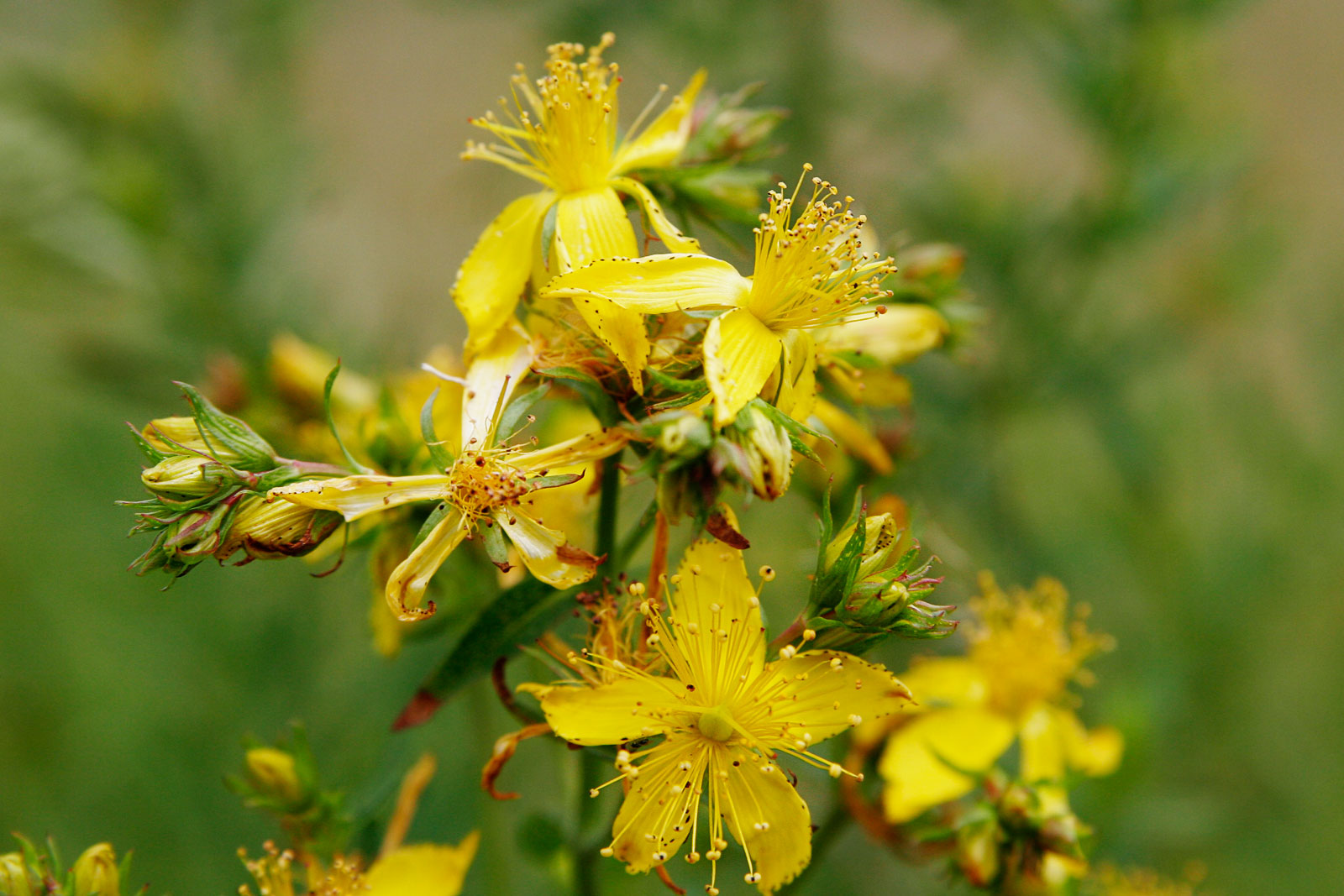Stress is a common factor in our daily lives and can have negative effects on our cognitive functions, including memory. In recent studies, the potential benefits of St. John's wort (Hypericum perforatum) in alleviating stress-induced memory impairment have been explored. This flowering shrub, native to Europe, has a long history of medicinal use and is known for its antidepressant properties. In this article, we will delve into the research surrounding St. John's wort and its effects on stress and memory impairment.
St. John's Wort: A Natural Solution for Stress
While occasional stress is a normal part of life, chronic stress can have detrimental effects on both physical and mental health. Many individuals turn to natural remedies to cope with stress, and St. John's wort is one of the most common choices, with it being something of a housewives favorite for decades. The potential stress-relieving properties of St. John's wort are believed to be attributed to its ability to increase the availability of certain neurotransmitters, such as serotonin, dopamine, and norepinephrine, [1] which play a crucial role in mood regulation.
The Evidence Behind St. John's Wort for Stress and Anxiety
Research on the use of St. John's wort for stress and anxiety has shown promising results. While most studies have focused on its effectiveness in treating depression, there is evidence suggesting its potential benefits for other mood disorders as well. [2] Several studies have found that St. John's wort may help alleviate symptoms of mild-to-moderate depression, with some studies even comparing its efficacy to prescription antidepressants. [3]
In fact, some research suggests that it may be as effective as certain prescription antidepressants. However, the evidence is conflicting, with some studies indicating no significant difference between St. John's wort and a placebo. [4] And it is important to note that the evidence for severe depression is still limited, and further research is needed.
Understanding Stress-Induced Memory Impairment
Stress can significantly impact our ability to acquire and retain information, leading to memory impairment. The hippocampus and prefrontal cortex, key regions in the brain associated with memory and cognitive functions, are particularly vulnerable to the effects of stress. Chronic stress and increased levels of corticosterone, a stress hormone, can disrupt synaptic plasticity, {5] which is crucial for proper memory formation.
The Role of St. John's Wort in Alleviating Memory Impairment
Recent studies have investigated the potential of St. John's wort in mitigating the negative effects of stress and corticosterone on memory. One study conducted on rats found that chronic administration of St. John's wort significantly improved spatial working memory in stressed and corticosterone-treated rats. [6] The rats displayed enhanced processing of spatial information in the Barnes maze test, indicating a restoration of memory function.
Restoring Synaptic Plasticity with St. John's Wort
The beneficial effects of St. John's wort on memory impairment may be attributed to its ability to restore levels of synaptic plasticity proteins in the hippocampus and prefrontal cortex. Neuromoduline (GAP-43) and synaptophysin (SYP) are key proteins involved in synaptic plasticity. Western immunoblotting analysis revealed that St. John's wort increased levels of GAP-43 and SYP in the hippocampi and prefrontal cortex of stressed and corticosterone-injected rats. [7]
Implications for Patients with Impaired Adaptation to Stressors
The findings from these studies provide valuable insights into the reaction of the hippocampus and prefrontal cortex to stressful situations and offer potential treatment options for patients with impaired adaptation to environmental stressors and concurrent cognitive impairment. St. John's wort, with its ability to improve hippocampus-dependent spatial working memory, holds promise as a natural remedy for individuals experiencing stress-induced memory impairment.
The Mechanism of Action: How Does St. John's Wort Work?
The exact mechanism by which St. John's wort exerts its antidepressant effects is still not fully understood. It is believed that the active ingredients in the plant, such as hyperforin, contribute to its therapeutic properties. St. John's wort may act similarly to selective serotonin reuptake inhibitors (SSRIs), increasing the availability of neurotransmitters like serotonin, dopamine, and norepinephrine in the brain. These neurotransmitters play a crucial role in regulating mood and improving depressive symptoms. [8]
Other Potential Benefits of St. John's Wort
In addition to its potential as a treatment for depression and memory impairment, St. John's wort has been studied for its effects on other conditions. Some evidence suggests that it may help alleviate symptoms of premenstrual syndrome (PMS), [9] including cramps, irritability, and breast tenderness. It has also shown promise in improving mood and anxiety during menopause [10] when combined with black cohosh. Furthermore, St. John's wort has been explored as a possible treatment for seasonal affective disorder (SAD), [11] eczema, wounds, minor burns, and hemorrhoids. [12,13]
Safety and Side Effects of St. John's Wort
While St. John's wort is generally considered safe when taken in appropriate doses, it is important to be aware of potential side effects. Common side effects include anxiety, dry mouth, sensitivity to sunlight, dizziness, stomach upset, headache, sexual problems, and fatigue. [14] It may also have interactions with various medications, including antidepressants, birth control pills, blood thinners, HIV medications, cancer drugs, cyclosporine, and digoxin. Therefore, it is crucial to consult with a healthcare provider before incorporating St. John's wort into your treatment regimen.
Despite St John's Wort being so well known there are a number of better supplements for stress.
References
1 - https://pubmed.ncbi.nlm.nih.gov/12775192/
2 - https://pubmed.ncbi.nlm.nih.gov/21336544/
3 - https://www.ncbi.nlm.nih.gov/books/NBK92750/
4 - https://www.nccih.nih.gov/health/st-johns-wort-and-depression-in-depth
5 - https://www.ncbi.nlm.nih.gov/pmc/articles/PMC4128486/
6 - https://pubmed.ncbi.nlm.nih.gov/15661574/
7 - https://www.ncbi.nlm.nih.gov/pmc/articles/PMC6428973/
8 - https://www.ncbi.nlm.nih.gov/pmc/articles/PMC4946846/
9 - https://pubmed.ncbi.nlm.nih.gov/20155996/
10 - https://pubmed.ncbi.nlm.nih.gov/10623319/
11 - https://files.nccih.nih.gov/s3fs-public/SJW_and_Depression_11-30-2015.pdf
12 - https://pubmed.ncbi.nlm.nih.gov/22205093/
13 - https://pubmed.ncbi.nlm.nih.gov/26388268/
14 - https://www.nccih.nih.gov/health/st-johns-wort




